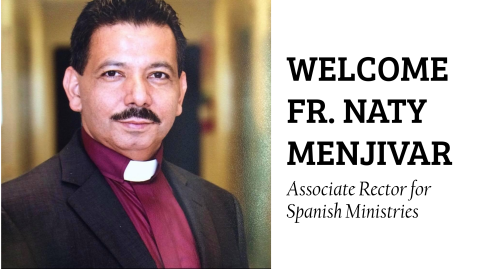TLDR: 2.5 years after my blog, “Three Small Books on My Desk,” I have decided to highlight some of the books I have read. I have divided the blog into three sections: Poetry/Spiritual Formation, Theology, and Fiction. I hope you like the recommendations that follow.
On September 30, 2020, I wrote a blog post entitled “Three Small Books on My Desk.” On that post I highlighted, Selected Poems by Henry Wadsworth Longfellow, Just This by Richard Rohr, and Who Will Deliver Us? by Paul Zahl, giving the reader the reasons why I found each of those books particularly relevant for that panic-infused era in our lives. I received so many positive comments about that blog that I promised myself to write another “Dispatch From my Desk” at some point. It has taken me more than 2.5 years to fulfil that desire, but I have read so many great books since then that the time has come for a new issue. I have decided to divide the blog into three sections: Poetry/Spiritual Formation, Theology, and Fiction. I hope you like the recommendations that follow.
Poetry and Spiritual Formation:
I have read several significant books in this area, but two of them have impacted me greatly. Each of these books provides the reader with narrative reflection, commentary, and poetry. This Here Flesh, by the NY Times Bestselling Author Cole Arthur Riley, is a beautifully written, deeply spiritual work that seeks to add a fresh voice to “Spirituality, liberation, and the stories that make us.” Cole describes herself as a black, urban, contemplative woman that seeks to take contemplation in a new direction, away from white, academic, professional theologians. And she has done this beautifully in her Black Liturgies blogs and her two bestselling books. The book is readable, indescribably sad at times, and filled with hope and joy at other times. She says, “I sit in silence but attuned to the whispers of my ancestors and all who have formed me.” One of my favorite poems in the book reads as follows:
It’s called healing.
The second book in this category is by the Irish Poet, Pádraig ó Tuama (Born in Cork County, Ireland but a long time resident of Belfast.) 50 Poems to Open Your World, is both a book of poems and a book about poets. The author is a poet, theologian, and podcast host of Poetry Unbound (On Being Studios.) He is a community advocate working on peace and reconciliation issues in Northern Ireland. He is also a bestselling author, public speaker, teacher, and social commentator. In this book, Pádraig showcases fifty poems of famous modern poets from around the world, talking about their style, structure, social context, and impact. But he does more than this, he also speaks knowingly about the authors’ lives and the situations that gave rise to their works. “I’ve worked on conflict resolution for about twenty years, focusing particularly on the ongoing legacy of British-Irish conflict in the north of Ireland. Themes of religion, language, citizenship, peace and violence have been part of my working life; I find a lot of those ideas in the poems I’ve selected.” I highly recommend this and other Pádraig works.
Theology
I have been reading Tom Wright for over twenty years and I know that many of you have read him as well. N. T. Wright has become wildly known throughout the Church and he is a frequent speaker at interdenominational conferences around the globe (He is coming to Houston soon, if interested in attending this conference, please register HERE.) On Christmas 2021, I received “Paul: A Biography” as a gift from one of my parishioners. The book remained on my desk for the entire 2022 and half of 2023 years. I had made a pledge during the Pandemic not to read any new books until I read a number of theology books I had purchased in prior years. In May last year, I placed the book in my backpack as I went to Camp Allen to a meeting. That night, I opened the book at around 9:00pm and didn’t stop until well pass 2:00am. Since that night, I have read the book fully and I am about halfway done with a second reading, this time taking the notes I wished I would have taken the first time around. What makes this book so compelling? Although it is written as a biography, it reads as a fascinating novel. There is intrigue, suspense, deep sadness, great joy, incredible relationships, lonely nights, last minute escapes from danger, conflict within and outside of the group of believers called “Christians,” deep and abiding love of neighbor, and courageous opposition to the powers of the day. Paul was un unlikely revolutionary turned mouthpiece for God. He was impatient at times, driven to exhaustion by his relentless work ethic, and prone to dark moods and flights of fancy. Perhaps most importantly, he was an inspired and inspirational teacher and apologist for Christ.
No one alive today knows more about Paul than N. T. Wright. Beyond knowing about Paul, Wright gets Paul. He understands him in what Paul says and in his silences. Both men belong to the same group of people who give their lives completely to the proclamation of the Gospel, and there is nothing on the face of the earth that can impede their single-minded mission. In Paul the author has found a kindred spirit. Wright has spent decades trying to understand the “Apostle to the Gentiles” and that quest has determined and conditioned much of the Bishop’s professional and personal career. I could not recommend this book enough. If you love Paul, or if you have read any other books by N. T. Wright, you owe it to yourself to read this book.
Fiction
After taking a long break from Latin American literature, and reading all sorts of American classics, I decided last year to return to the magical realism of Hispanic Authors. I have read over twenty books by Laura Restrepo (Colombian by way of Cornell University,) Mario Mendoza (Colombian author from Bogota,) Isabel Allende (World renown author from Chile now residing in California,) and Mario Vargas Llosa (Peruvian master writer and Nobel prize winner). I would like to highlight two of these books, one in Spanish and one in English.
Satanás by Mario Mendoza was published in 2002 to international acclaim (Yet, ironically, it has not been translated into English!) The book narrates three fictional stories wrapped around an actual event of serial killer Campo Elias Delgado, who in 1986 killed 36 people in Bogota over the space of 24 hours. The author places his three fictionalized characters at the scene of Delgado’s mass killing at an Italian restaurant in Bogota, where they are also killed. Now, if you feel like there is no need to read the book because I already told you the plot, you are wrong. In narrating life in Bogota for his three characters, Mendoza makes the city into an evil more sinister than Delgado. Street crime, revenge killings, rape, demonic possessions, unfaithful priests, gangs, and overwhelming poverty make the city into a nightmare place worse than Dante’s Inferno. Mendoza castigates the apathy of the wealthy classes of Bogota with the same force with which he excoriates corrupt politicians and out-of-touch Catholic leaders. To read Satanás is to take a deep dive into the reasons why Bogota, and Colombia in general, were a “theater to the macabre” in the 1980s and 1990s. You will be fascinated, repelled, moved, and enraged all at the same time. This book alone is worth learning Spanish!
Isabel Allende has written over twenty international bestsellers which have been translated into dozens of languages. Her great international acclaim started with her “House of the Spirits,” written in 1982 and turned into films in several languages, including English. Early last year, NPR had a show in which various guests commented on Allende’s latest book, Violeta. I love grand, sweeping, multi-generational stories like A Hundred Years of Solitude by Gabriel Garcia Marquez, and this work belongs to this genre. The book is the story of Violeta del Valle, a woman who lives to be a hundred years old and who was a first-person witness to the greatest historical events of the twentieth century. Born during the great Influenza crisis of 1920 and dead during the great Covid-19 Pandemic of 2020, Violeta leads the life of a trailblazer. Hers is a grand life lived unapologetically, courageously, and intensely. The events of Violeta’s life read like a history of the twentieth century: 1920 Pandemic, the great depression and the reversal of fortune that it caused for many, marriage and divorce, the second world war, post war capitalism and entrepreneurship, the free love movement, the Vietnam war, the Pinochet dictatorship, the drug wars and AIDS epidemic of the 1980s, becoming a mother to her grandson as she was entering “the third age of life,” relocating to the United States, overseeing her grandson’s discernment into the Catholic priesthood, transitioning her business to a charitable foundation for the care of women, and finally, dying full of years and incredible memories. Violeta represents the indomitable spirit of many Latin American women who raise children and build empires for which they seldom get the credit. This great book can be found in a number of languages, including English. I highly recommend the Spanish version.
I hope this blog inspires you to grab a book, any book, and to get lost in strange and fascinating worlds. May God continue to bless you,
Fr. Roman+





